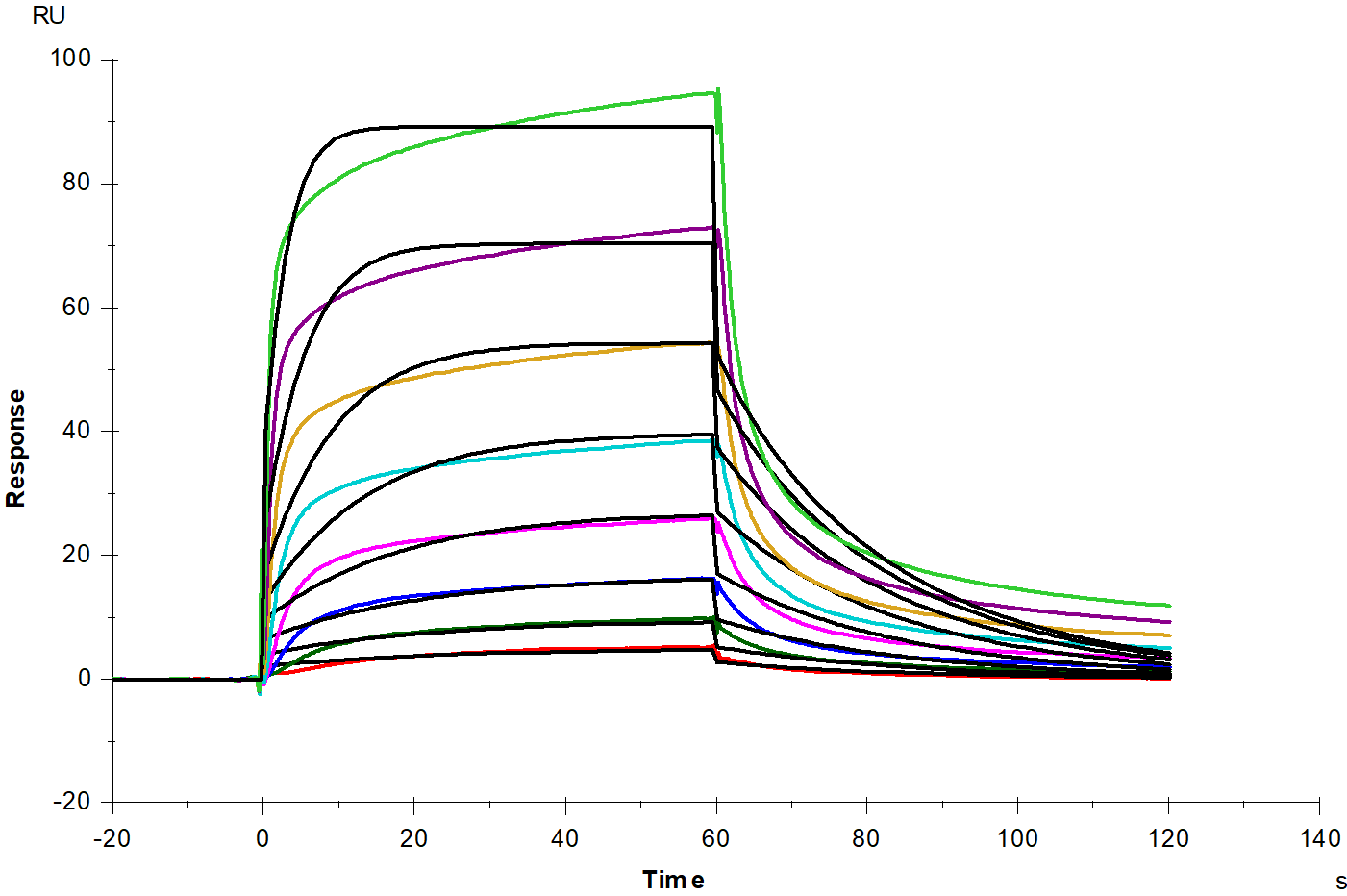Cys24-Ser195, with C-terminal His Tag
24-27 kDa (Reducing)
PBS, pH7.4
Reconstitute at 0.1-1 mg/ml according to the size in ultrapure water after rapid centrifugation.
·12 months from date of receipt, lyophilized powder stored at -20 to -80℃.
·3 months, -20 to -80℃ under sterile conditions after reconstitution.
·1 week, 2 to 8℃ under sterile conditions after reconstitution.
·Please avoid repeated freeze-thaw cycles.
Immunol Rev. 2004 Dec: 202:8-32.
Interferon-Omega (IFN-ω), coded by the IFNW1 gene in humans, is a member of the type I interferon family, which also includes IFN-α and IFN-β. This protein is known for its antiviral, anti-proliferative, and antitumor activities, which are similar to those of IFN-α. IFN-ω shares approximately 75% sequence homology with IFN-α and is characterized by two intramolecular disulfide bonds that are crucial for its activities. The IFNAR-1/IFNAR-2 receptor complex is involved in signal transduction following the binding of IFN-ω, leading to antiviral or antiproliferative actions.
In the industrial sector, IFN-ω has several applications, particularly in the biotechnology and pharmaceutical industries. One of the key applications is in the development of therapeutics for viral infections and certain diseases. Studies have shown that human IFN-ω displays antitumor activities in some models of human cancer cells and can be used for diagnosing certain diseases. Recombinant human IFN-ω has been explored as a treatment option for diseases or viral infections in humans and other animals.
Measured in a cytotoxicity assay using human TF-1 cells. The EC50 for this effect is less than 0.1ng/ml.
2μg (R: reducing condition, N: non-reducing condition).
>95% as determined by RP-HPLC.

Protein A Chip captured IFNAR1 Fc Chimera Protein, Human (Cat. No. UA011167), can bind IFN-Omega Protein, Human (Cat. No. UA040381) with an affinity constant of 154 nM as determined in SPR assay.